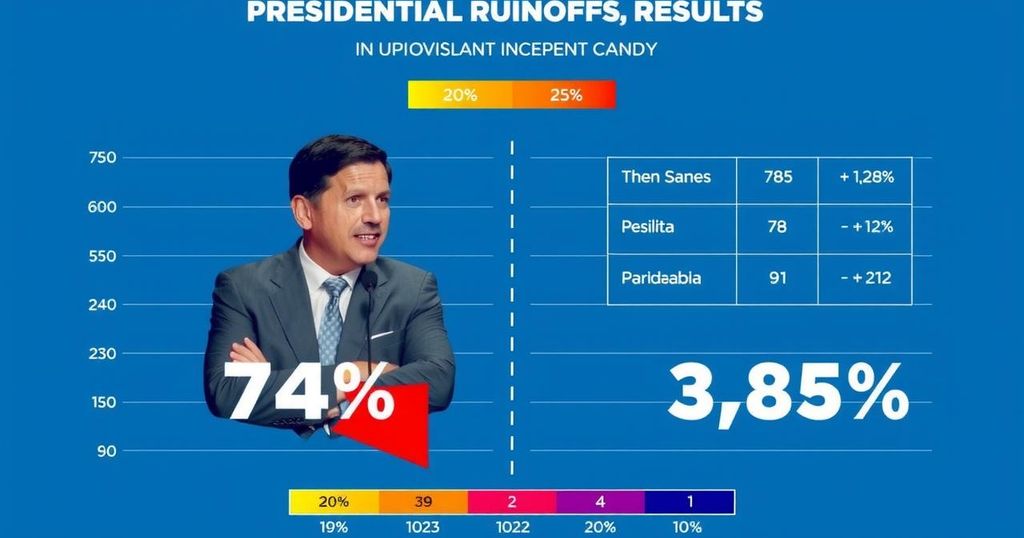Uruguay’s Presidential Election: Incumbent Concedes to Center-Left Challenger
Uruguay’s incumbent candidate Álvaro Delgado conceded defeat to center-left challenger Yamandú Orsi in a close presidential runoff. With over 57% of votes counted, Orsi led with 784,523 votes against Delgado’s 771,434. Orsi’s victory reinstates the Broad Front, known for progressive social reforms. Delgado’s loss highlights voter dissatisfaction with economic stagnation and rising crime, mirroring global trends of rejecting incumbent parties during this election year.
In a closely contested runoff election in Uruguay, Álvaro Delgado, the candidate from the conservative coalition that has governed for the past five years, acknowledged his defeat, despite the ongoing vote count. He congratulated leftist challenger Yamandú Orsi, who, thus far, amassed a leading count of 784,523 votes against Delgado’s 771,434. Orsi’s emergence as the new president marks the return of the center-left Broad Front to power, ending the brief tenure of a right-leaning government that had overcome 15 years of Broad Front rule.
Uruguay’s political landscape has been characterized by a history of stability and moderate governance. The recent election highlights the shift in voter sentiment as frustration over economic conditions and crime rates influenced the outcome. The Broad Front, known for significant social policies such as the legalization of abortion and same-sex marriage during its previous leadership, seeks to continue its legacy under Orsi’s leadership. Voter dynamics were notably affected by perceptions of stagnant economic growth and a decline in living standards under the incumbent administration.
The recent election in Uruguay has underscored a desire among voters for change, as demonstrated by the concession of Álvaro Delgado and the ascension of Yamandú Orsi from the Broad Front. Although Orsi aims for moderate policies, his victory signifies a rejection of the previous government’s approach and an intention to address vital issues such as poverty and crime. This electoral outcome not only reflects a trend seen in various global democracies but also sets the stage for a new chapter in Uruguay’s political history.
Original Source: www.pbs.org




Post Comment